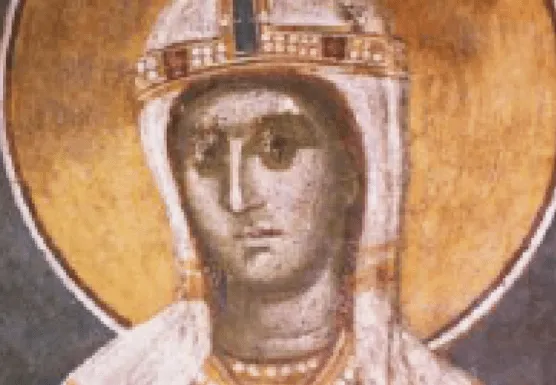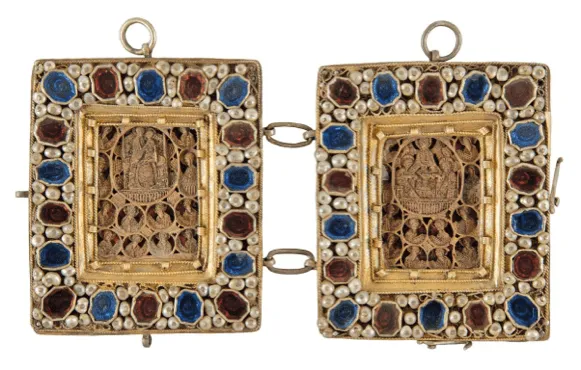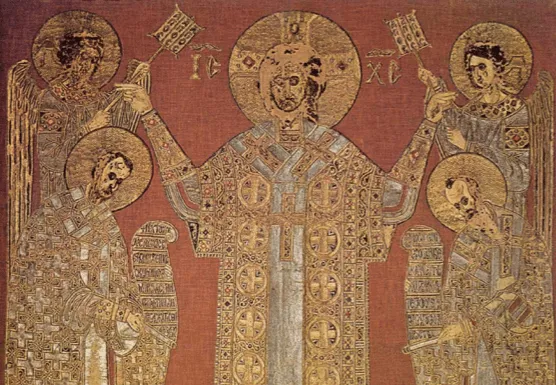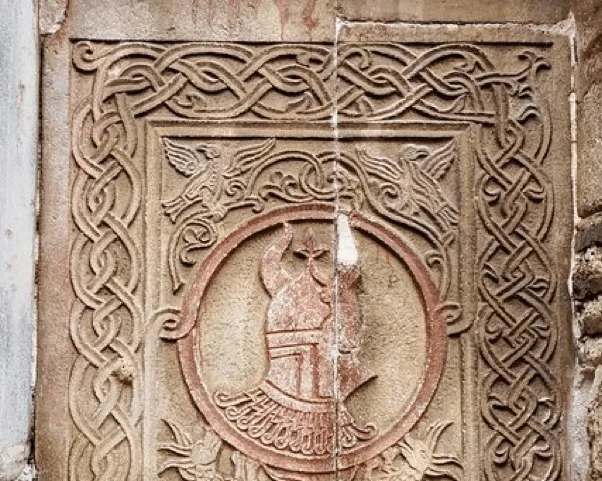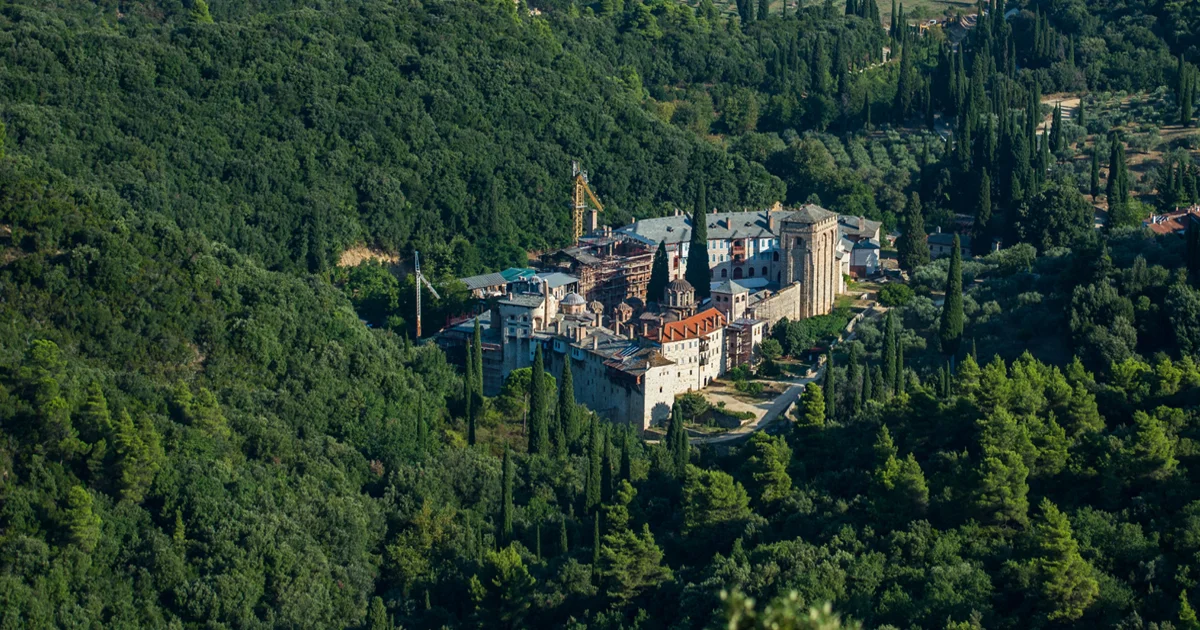Pohvala svetom Knezu Lazaru
U krasotama ovoga sveta vaspitao si se od mladosti svoje
o novi mučeniče kneže Lazare,
i krepka ruka Gospodnja među svom zemaljskom gospodom
krepkog i slavnog pokaza te.
Gospodstvovao si zemljom otačastva ti
i u svim dobrotama uzveselio si uručene ti hrišćane
i mužastvenim srcem i željom pobožnosti
izašao si na zmiju
i neprijatelja božanstvenih crkava,
rasudivši da je neistrpljivo za srce tvoje
da gleda hrišćane otačastva ti
ovladane Izmailćanima,
ne bi li kako ovo postigao:
da ostaviš propadljivu visotu zemaljskog gospodstva
i da se obagriš krvlju svojom
i sjediniš sa vojnicima nebeskoga cara.
I tako dve želje postigao jesi:
i ZMIJU ubio jesi
i mučenja venac primio jesi od Boga.
Sada ne predaj zaboravu voljena ti čeda
koja si sirota ostavio prelaskom TVOJIM,
jer otkako si ti u nebeskom veselju večnom,
mnoge skrbi i bolezni obuzeše voljena ti čeda
i u mnogim skrbima život provode,
pošto su ovladani Izmailćanima.
I svima nam je potrebna pomoć tvoja,
te se molimo moli se zajedničkom Vladiki
za voljena ti čeda
i za sve koji im s ljubavlju i verom služe.
Tugom su mnogom združena voljena ti čeda,
jer oni što jedoše hleb njihov podigoše na njih bunu veliku
i tvoja dobra u zaborav staviše,
o mučeniče.
No ako si i prešao iz života ovoga,
skrbi i bolezni čeda svojih znaš
i kao mučenik slobodu imaš pred Gospodom,
prekloni kolena pred Vladikom koji te venčao,
moli da mnogoletni u dobru život
voljena ti čeda provode bogougodno,
moli da pravoslavna vera hrišćanska
neoskudno stoji u otačastvu ti,
moli pobeditelja Boga
da pobedu podari voljenim ti čedima,
knezu Stefanu i Vuku,
za nevidljive i vidljive neprijatelje,
jer ako pomoć primimo s Bogom,
tebi ćemo pohvalu i blagodarenje dati.
Saberi zbor svojih sabesednika, svetih mučenika,
i sa svima se pomoli proslavitelju ti Bogu,
izvesti Georgija,
pokreni Dimitrija,
ubedi Teodore,
uzmi Merkurija i Prokopija
i četrdeset sevastijskih mučenika ne ostavi,
u čijem mučeništvu vojuju čeda tvoja voljena,
knez Stefan i Vuk,
moli da im se poda od Boga pomoć,
dođi, dakle, U pomoć našu, ma gde da si.
Na moja mala prinošenja pogledaj
i u mnoga ih uračunaj,
jer tebi ne prinesoh pohvalu kako priliči,
već koliko je moguće malome mi razumu,
pa zato i male nagrade čekam.
No nisi tako ti, o mili moj gospodine i sveti mučeniče,
bio malodaran u propadljivom i malovečnom,
koliko više u neprolaznom i velikom,
što primio jesi od Boga,
jer telesno stranu mene u tuđini
ishranjivao jesi izobilno,
te sada te molim oboje:
da me ishraniš
i da utišaš buru ljutu duše i tela mojega.
Jefimija usrdno prinosi ovo tebi, Sveti.

